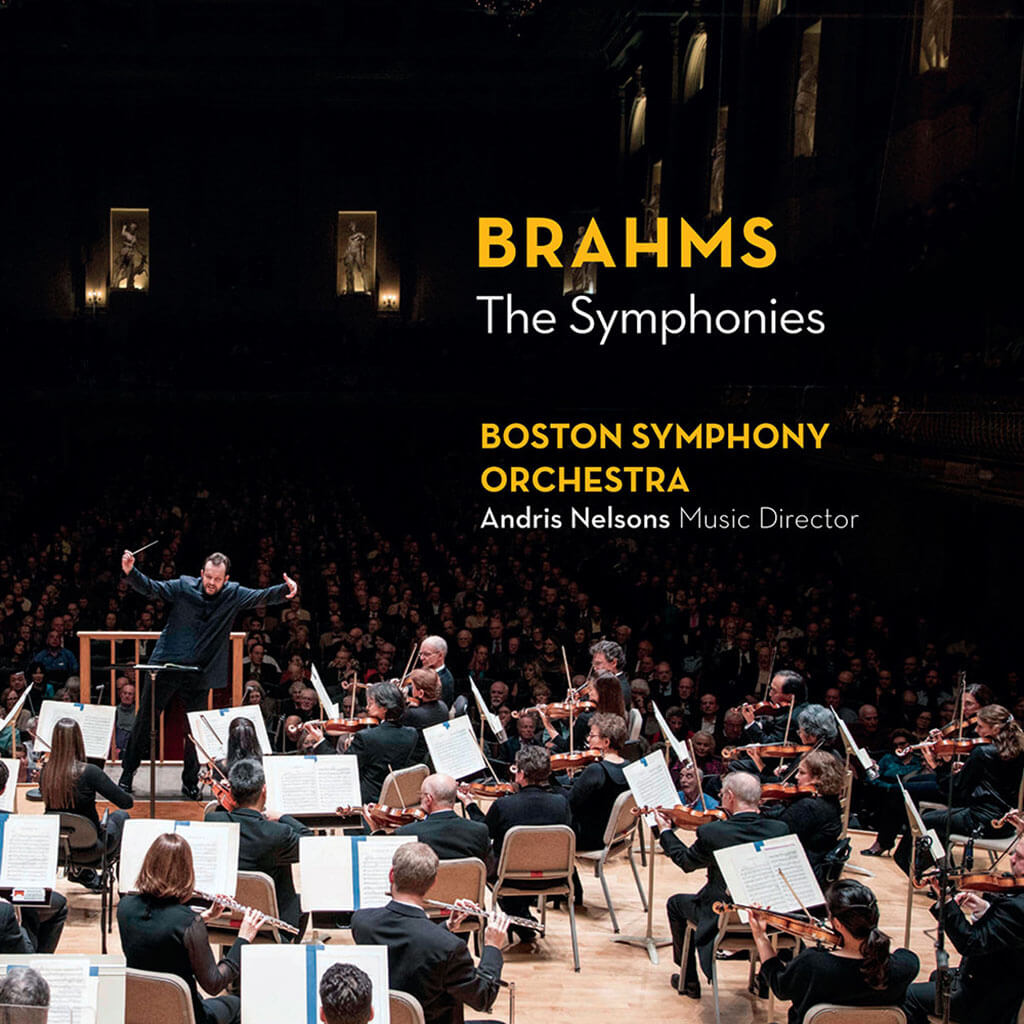
Andris Nelsons and the Boston Symphony have recorded some Shostakovich symphonies for Deutsche Grammophon, and the reviews — including those written by me — have been seriously enthusiastic. Nelsons and the BSO are also issuing recordings on the orchestra’s house label – BSO Classics – and in these, unfortunately, Brahms has gotten the short end of the stick. The performances, while beautifully played, lack passion, and the audio engineers seemed to be having a bad day.
I started my sampling of this set with the first movement of Brahms’ Third Symphony. What struck me immediately was how often Nelsons changed tempos — almost every few bars — a touch of Furtwängler, one might say, but as I listened to the rest of the performance, and went on to the other symphonies, it became clear that the opening of the Third was the exception, not the rule. In fact, Nelsons generally chooses a tempo and sticks to it. There are no wildly personal eccentricities here; Nelsons’ approach to Brahms is conservative and apart from the exceptional quality of the playing, tends to make for a somewhat dull performance.
Part of the problem is surely also the result of the choices made by the producers and engineers. Again and again, I was puzzled by the lack of presence and bite in the first violins. I often got the impression that the first violin section was either drastically reduced in size, or had overdosed on Valium; for whatever reason, the first violins are conspicuous by their absence. Knowing the power of the Boston Symphony’s superlative first violin section, I can only conclude that the producers and engineers have simply balanced them badly with the rest of the orchestra. In addition to this, the sound of the timpani is frequently hard and dry; both of these choices are questionable and are serious drawbacks on this recording.
On a positive note, some of its highlights for me include some solo passages featuring principal wind players; for example, the flute solo in the last movement of the Fourth Symphony is as beautifully played as I have ever heard it. Elizabeth Rowe’s tone and phrasing are a veritable master class in how to play this famous solo. Elsewhere, the playing of clarinettist William H. Hudgins and oboist John Ferrillo caught my attention time and again.
Andris Nelsons treads very carefully in these Brahms performances, making sure that each of the dynamic markings is accurately realized — especially at the quieter end — and that in itself is a good thing. But the danger is – and unfortunately, Nelsons succumbs to it — that attention to detail often gets in the way of the forward motion and genuine excitement. To my mind, Brahms was outwardly reserved, but often seething with emotion inside and he expressed that pent-up passion in his music. That said, there is not much passion in these performances. Even the famous big moments such as the peroration at the end of the First Symphony, are restrained and held back.
On other recent recordings of the complete Brahms symphonies, both Thielemann (DG 002133400) and Chailly (Decca 002121502) offer more dynamic performances.
For more RECORD KEEPING, see HERE.
#LUDWIGVAN
Want more updates on Toronto-centric classical music news and reviews before anyone else finds out? Follow us on Facebook or Twitter for all the latest.
- SCRUTINY | TSO Lets Berlioz Do The Talking In Season Opener - September 21, 2018
- RECORD KEEPING | Even Yannick Nézet-Séguin Can’t Make Us Love Mozart’s La Clemenza di Tito - September 6, 2018
- RECORD KEEPING | Giovanna d’Arco With Anna Netrebko Explains Why The Best Operas Survive - August 30, 2018



